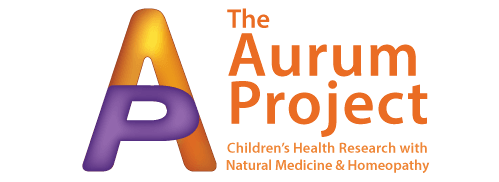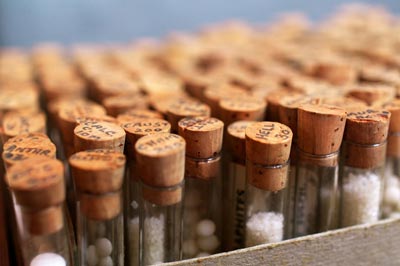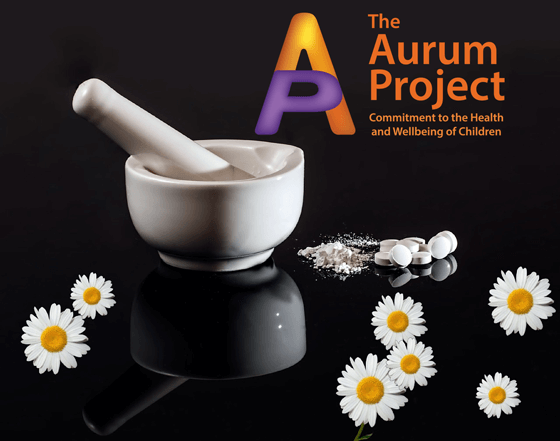What does eczema look like?
Generally the skin is dry and itchy, and some areas may look red and cracked. In an eczema flare up, the skin may weep fluid.
Nummular eczema, nummular dermatitis and discoid eczema all describe the same thing: a chronic eczema which has distinct coin shaped spots on the skin which may ooze fluid or become dry and crusty.
Seborrheic dermatitis/ eczema appears on the scalp with flaky scales but also can be found on other parts of the body.
Eczema infection
Eczema may become infected because small cracks from scratching provide an entry point for bacteria.
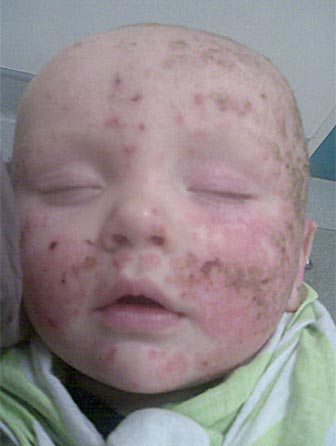
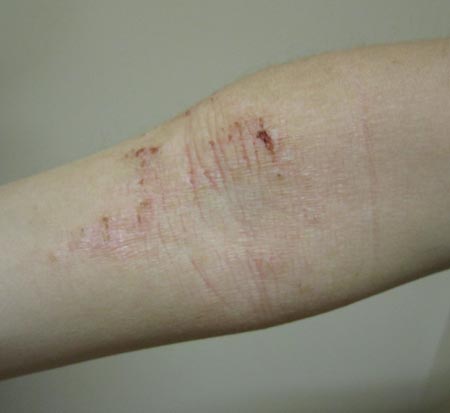
Which areas are particularly affected?
- Eczema on fingers: may be a contact dermatitis caused by allergens
- Eczema on lips: may occur when people have eczema elsewhere
- Eczema on face: an atopic family history (with eczema, asthma and allergies) may result in baby eczema
- Eczema on neck: in babies and children this may be worsened by dribbling saliva
- Eczema on babies: when babies start to crawl you often see eczema on the fronts of their knees as the exposed skin comes into contact with carpet etc and in older children in the folds of knees
Severe intractable Atopic Dermatitis
Seventeen patients with the most severe eczema you can imagine were treated with homeopathy in a Japanese study. Their serious condition showed no signs of improvement using conventional medicine. 50% improvement was reported by all patients using homeopathy.
Eczema treatment – the opportunity for research
Because eczema cannot be cured (though it can usually be controlled) using conventional methods, this highlights the importance of research exploring the possibility of using homeopathic medicine as a treatment for eczema.
The Aurum Project
The Aurum Project is a children’s natural health research charity. We are currently in preliminary discussion about the design of a patient satisfaction survey about homeopathic treatment of childhood eczema.
.
Homeopathy Research About Eczema
International research papers written about homeopathy as a treatment for childhood eczema have generally come to a positive conclusion. Research has included questions about quality of life and patient satisfaction. The papers agree that it is worthwhile to conduct more investigations because:
- there is potential for reduction in use of conventional drugs including topical steroid use
- the advantages of homeopathy being low cost, easy to administer with high patient acceptability
- patients also may see improvements in symptoms of seemingly unrelated medical conditions when their eczema is treated holistically
- the economic advantage when parents decrease their visits to conventional health services
- children treated with homeopathy seem to show a reduced tendency to maintain skin problems and develop asthma (and allergic rhinitis) as an adult
- Despite all the potential, there is no government funding for homeopathy research in Australia
Disclaimer: this information is for education purposes only. Please consult with your Doctor or other health professional to make sure this information is right for your child with eczema.

